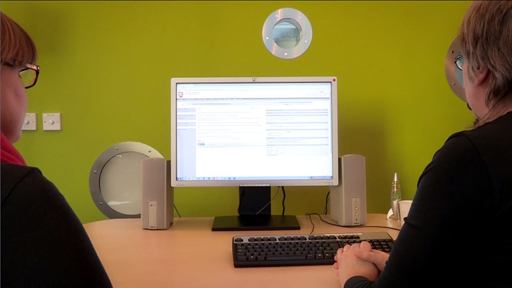2 Hearing ancient voices
There are many online resources for finding material on health in the ancient world. For example, the Perseus Project is a digital library and currently the fullest open access database of ancient Greek and Latin texts. You will explore this site in detail before considering some important issues in interpreting what you find, whether textual or archaeological.
First watch Video 4 which walks you through how to use the Perseus Project.

Transcript: Video 4 The Perseus Project
Now complete your own search on the Perseus website in Activity 6.
Activity 6
Follow the steps below to familiarise yourself with how to use the Perseus website. Refer back to the video above if you have trouble with any of these steps.
- Visit the Perseus website [Tip: hold Ctrl and click a link to open it in a new tab. (Hide tip)] .
- Type ‘Xenophon’ into the search box in the top-right corner of the screen. You’ll be given a full list of all the treatises by Xenophon currently held, in both Greek and English. One of these is Memorabilia, from which you read a short extract earlier. You also learned more about Xenophon himself in Section 1.5.
- In the list on Perseus, click on the English translation of Memorabilia.
- The section you read was Memorabilia, 4.2.31–32; this means Book 4, Chapter 2, Sections 31–32. On the left of the screen you can see the books and chapters; click on Book 4, Chapter 2 and then scroll down to Section 31. Click on this and you will find the beginning of the passage you have already read. Click on Section 32, or use the left and right arrows above the passage to find the rest.
- Use the further search facility, which works within the source you are currently reading. In the white box on the right of the screen, type in ‘health’ and you will be taken to one other passage in Memorabilia which uses this word.
- Click on the reference – Book 1, Chapter 2 – to see the phrase in context. What does this tell you about Socrates’ view of health?
Comment
Remember, searching in this way depends on the choices the translator used. If he or she translated the Greek hygieia not as ‘health’ but as ‘wellbeing’, for example, it won’t come up unless you search for that word. The English translation given here is from 1921; would you expect ‘wellbeing’ to be used at this time?
If you can read Greek, then look at the original text of this chapter by clicking on ‘focus’ under ‘Greek (1921)’ on the list of further material to the top right of the English translation. In the Greek text, the word used is the adjective ὑγιεινός (hygieinos) meaning ‘good for the health’.
